Are you feeling overwhelmed by the process of contesting a preauthorization for a specific treatment? You're not alone; many patients face challenges when navigating insurance requirements. In this article, we'll guide you through a simple yet effective letter template that can help you articulate your case clearly and confidently. Join us as we break down the key components of a successful appeal letter and empower you to take charge of your healthcare decisions!
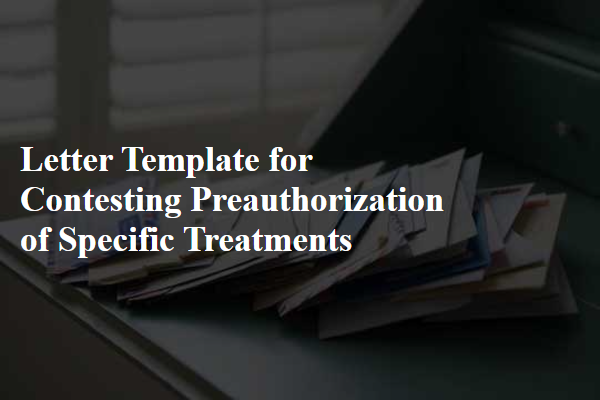
Patient Information and Identification
Contesting preauthorization for specific medical treatments involves detailed patient information. Patient demographics include full name, date of birth (month/day/year), and insurance policy number (group and member numbers). Treatment details encompass the diagnosis (ICD-10 code), prescribed procedures, and medication names associated with the healthcare provider's specialty (e.g., oncology). Clinical history summarizes prior treatments, including dates, effectiveness, and any adverse reactions. Supporting documentation consists of previous medical records, laboratory results, and referral letters from specialists. This comprehensive data establishes the medical necessity, outlining why the contested treatments must be approved for optimal health outcomes.
Treatment Details and Justification
Preauthorization disputes for medical treatments often arise when healthcare providers request specific interventions on behalf of their patients, which may include therapies, diagnostic tests, or surgeries. For instance, a request for prior authorization for a high-cost medication, such as Eculizumab, used to treat rare conditions like Atypical Hemolytic Uremic Syndrome, may be denied based on stringent insurance criteria. Justifications for appealing such decisions typically include detailed clinical rationale, referencing peer-reviewed studies that demonstrate the treatment's efficacy and necessity, as well as patient-specific factors such as previous treatment failures or the risk of serious complications if the proposed treatment is not administered. In appeals, citing guidelines from authoritative sources like the American Medical Association or evidence from recent clinical trials can significantly strengthen the argument for approval, emphasizing the potential impact on patient health outcomes. In summary, timely and well-supported preauthorization challenges are crucial in securing necessary medical care.
Relevant Medical Evidence and Documentation
In the contest of health insurance preauthorization denials, relevant medical evidence and documentation play a critical role in supporting the necessity of specific treatments. Comprehensive medical records, dated and signed by healthcare providers, should include diagnostic test results, clinical notes, and physician recommendations. For instance, MRI scans may reveal critical findings that necessitate surgical intervention, while laboratory reports can substantiate the need for specialized medication like biologics. Documentation must also highlight previous treatments attempted, their outcomes, and the rationale for recommending alternative therapies. Detailed accounts of the patient's medical history, relevant comorbidities, and progression of the condition establish the urgency and necessity of the requested treatments in accordance with established clinical guidelines. Outside references, such as peer-reviewed studies from medical journals, bolster the case by providing evidence-based support for the proposed interventions.
Healthcare Provider Support and Testimonials
Healthcare provider testimonials play a crucial role in contesting preauthorization denials for specific treatments, particularly in complex cases that require a multidisciplinary approach. Evidence-based support from physicians, specialists, or healthcare teams can enhance the appeal process. Detailed accounts of patient diagnoses, medical histories, and treatment plans--backed by clinical guidelines and research from respected institutions like the American Medical Association--underscore the necessity for certain therapies, such as biologics or surgical interventions. Accurate documentation, including relevant health outcomes and statistics, strengthens the argument for approval, demonstrating alignment with best practices and the potential for improving patient quality of life. Engaging patient advocates and utilizing their experiences can further highlight the critical need for timely access to care.
Appeal Process and Request for Re-evaluation
The appeal process for contesting preauthorization of specific treatments often involves a structured series of steps, which can vary depending on the healthcare provider or insurance company involved. Firstly, individuals must gather relevant documentation, including medical records, treatment plans, and justification letters from healthcare professionals, often physicians specializing in the necessary field, to substantiate the need for the treatment. Subsequently, a formal request for re-evaluation should be submitted, indicating clear reasons why the initial preauthorization was deemed inappropriate or insufficient, referencing specific policy criteria or medical guidelines that support the appeal. It is crucial to outline any pertinent diagnosis, treatment history, and potential outcomes related to the requested treatment, emphasizing the significance of addressing the medical necessity based on established evidence or clinical studies. Finally, a deadline for response should be noted, reflecting industry norms, typically within 30 days, while maintaining copies of all correspondence for tracking and follow-up purposes.
Letter Template For Contesting Preauthorization Of Specific Treatments Samples
Letter template of contesting preauthorization for physical therapy sessions.
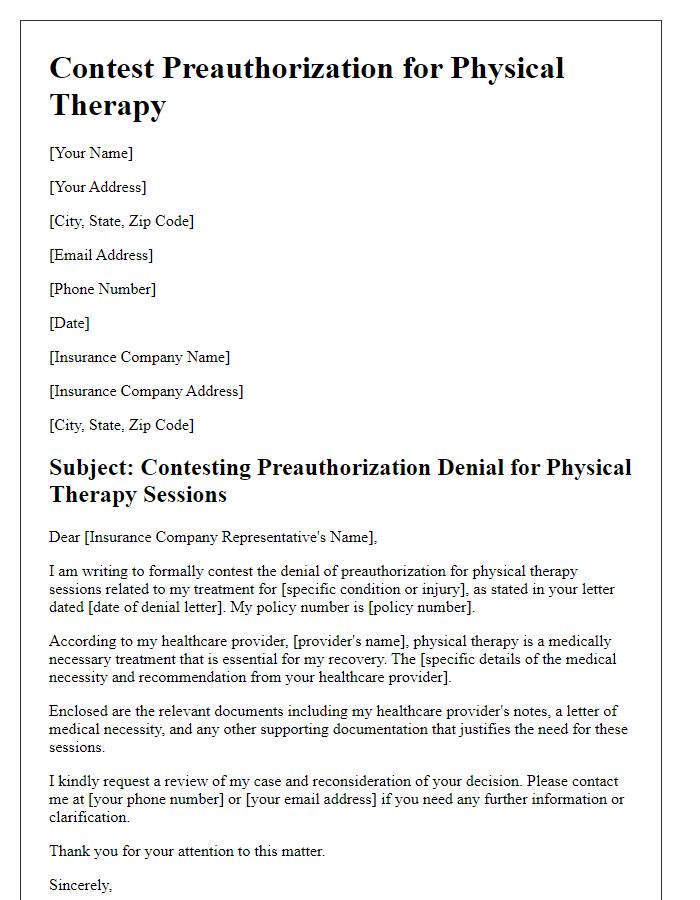
Letter template of contesting preauthorization for outpatient procedures.
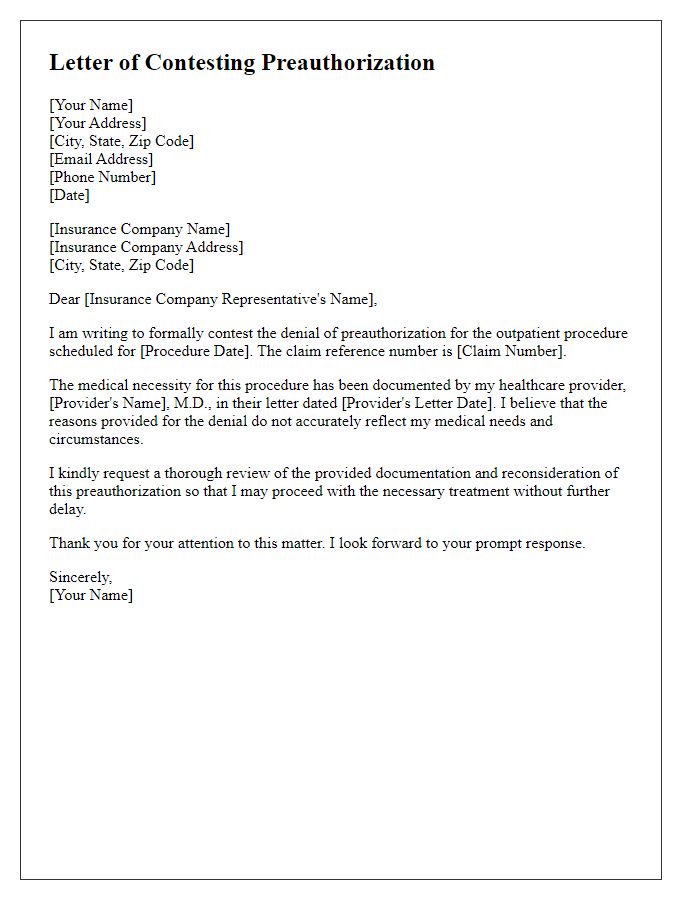
Letter template of contesting preauthorization for prescription medications.
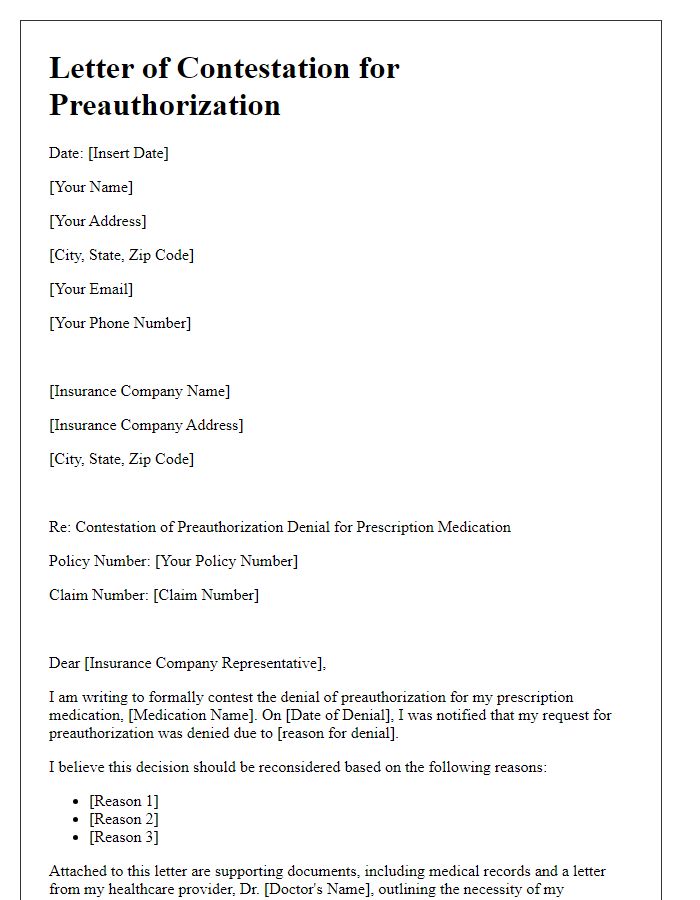
Letter template of contesting preauthorization for mental health services.
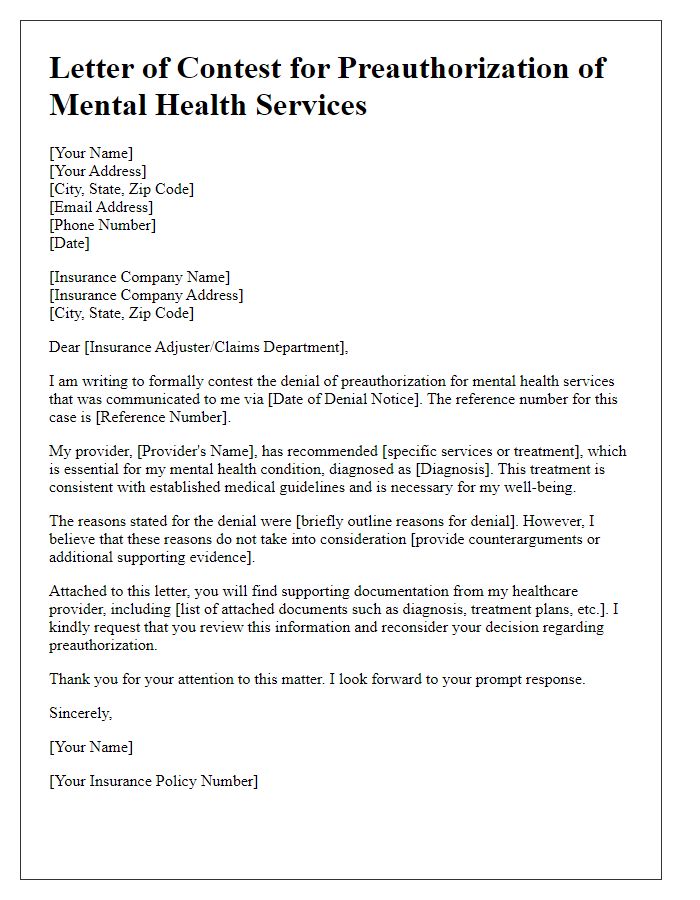
Letter template of contesting preauthorization for specialist consultations.
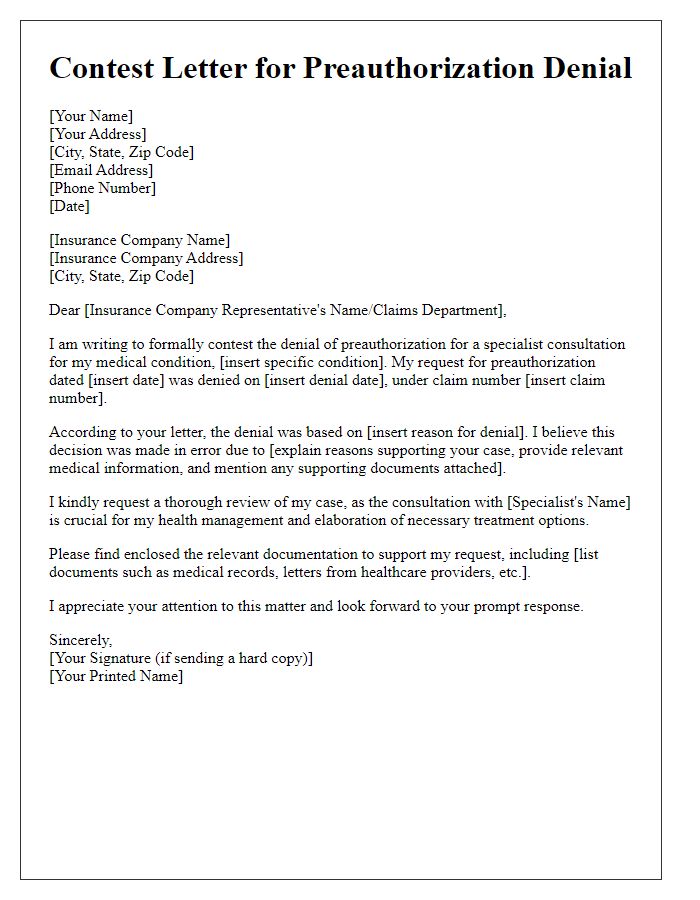

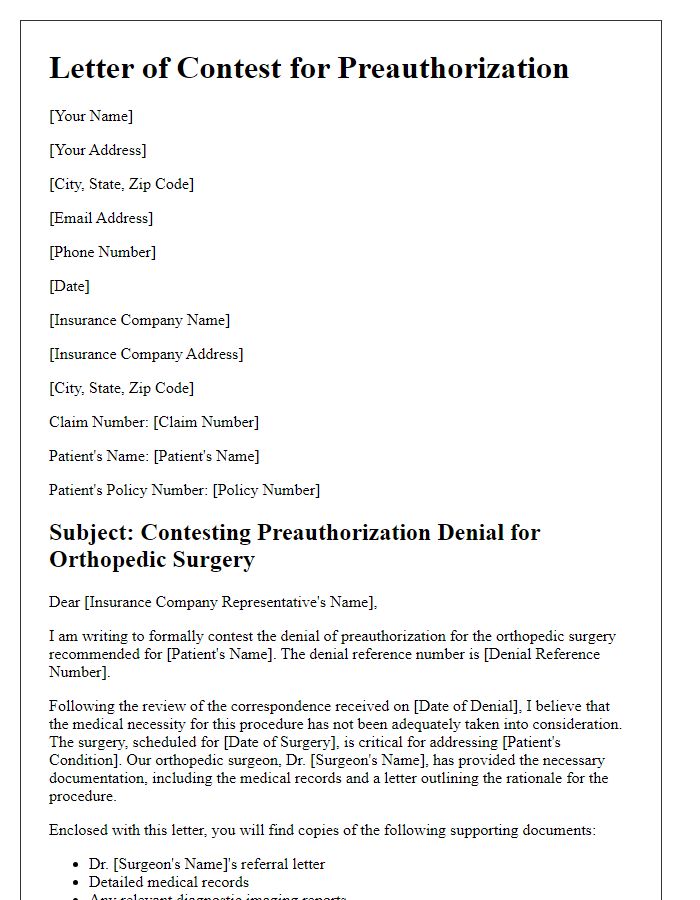
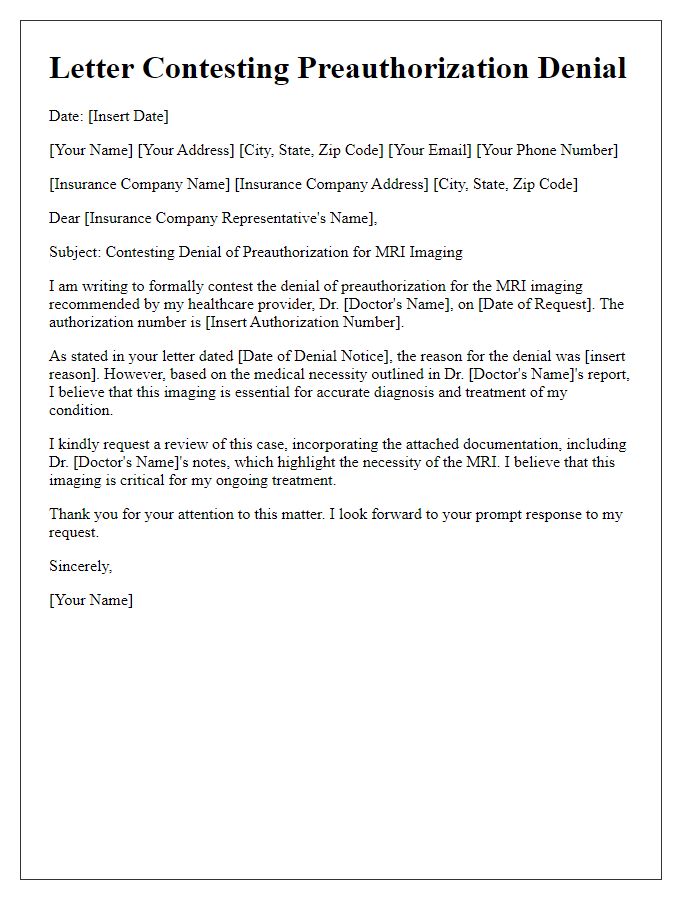
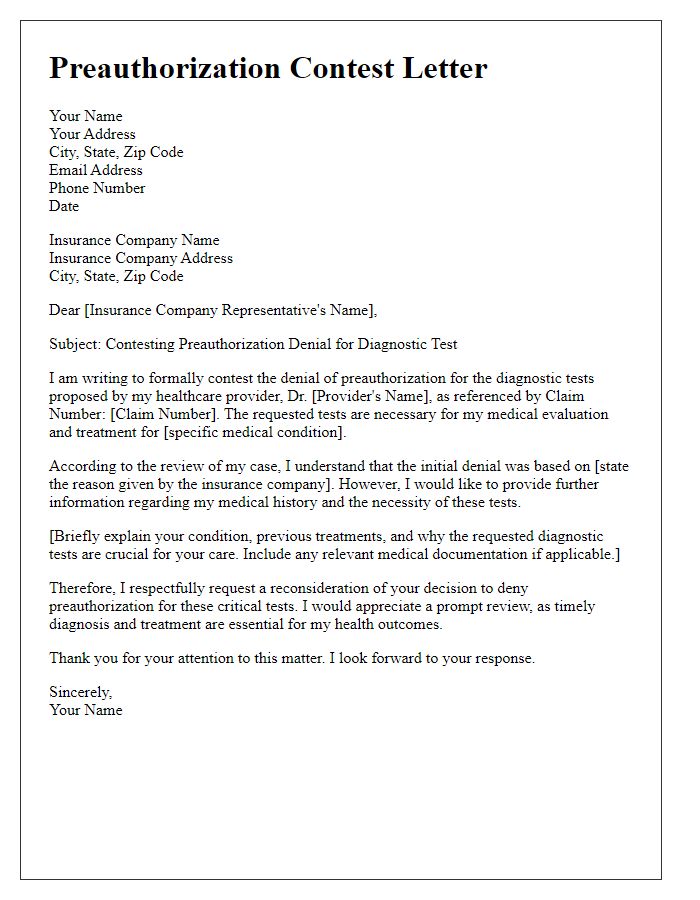
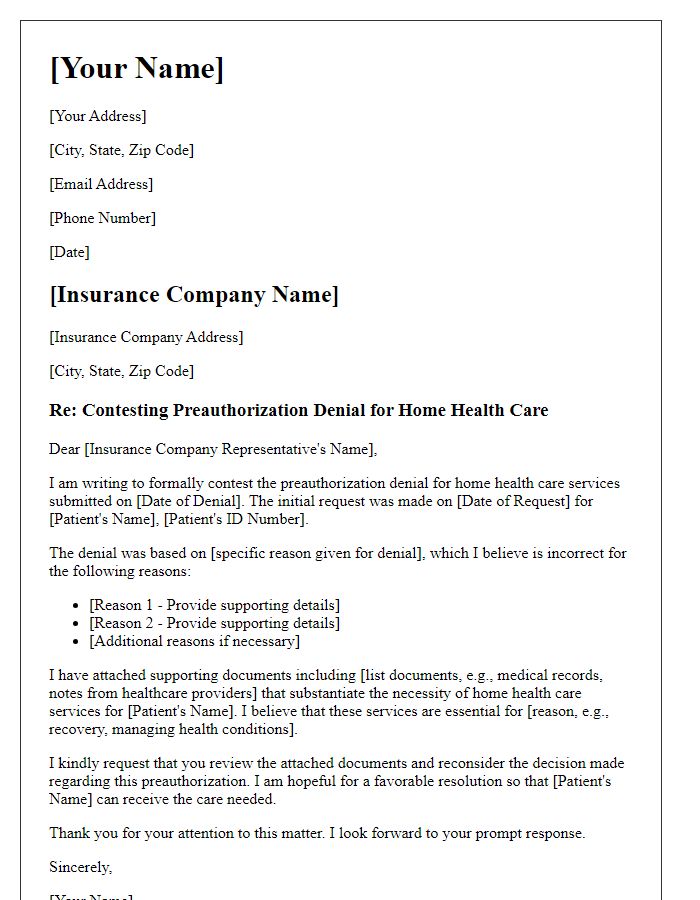
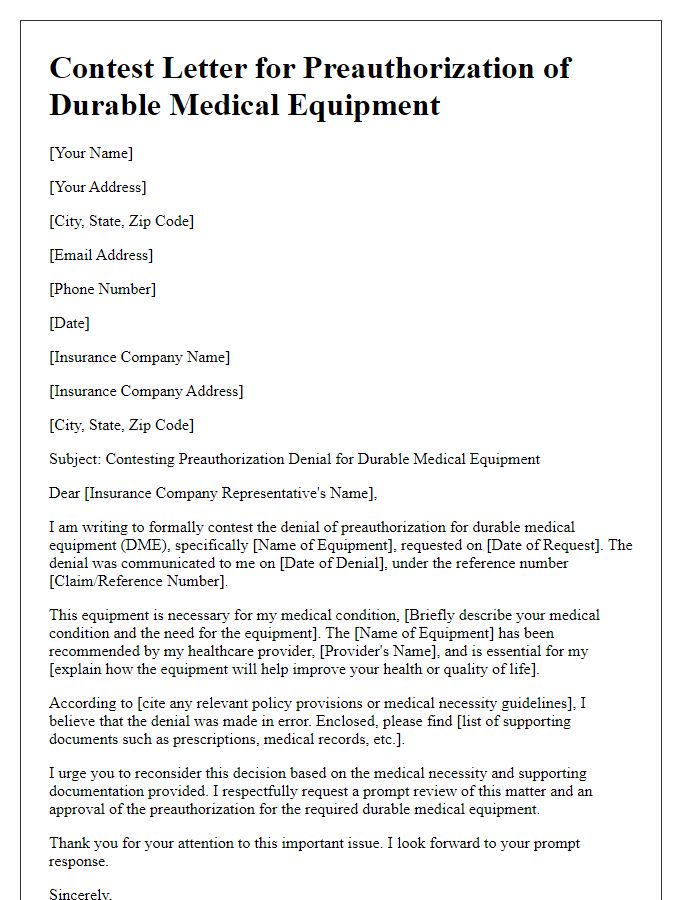

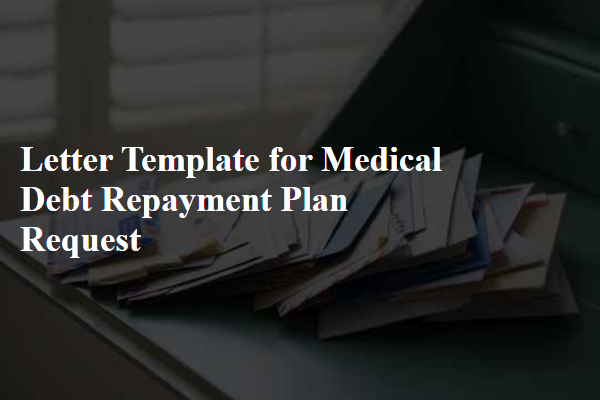
Comments